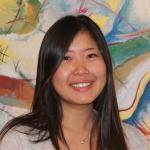For our third post in our Getting to Know ASF Grantees blog series, we’re happy to help you get to know Dr. Jill Locke. Dr. Locke was the recipient of a 2011 postdoctoral grant from ASF, with which she studied Implementing Evidence-Based Social Skills Interventions in Public School Setting. She is also the recipient of ASF’s 2013 3-Year Early Career Award.

What originally inspired you to begin research in your field?
I first became interested in autism when I learned that my youngest cousin was diagnosed. At the time, I didn’t know what that meant. I remember hearing stories about my cousin’s difficulty in school, but I really didn’t know much else about autism. I was intrigued and motivated to learn more. Around the same time, I was teaching preschool part-time, and three students with autism rotated through my classroom. I distinctly remember one of my students with autism, “Johnny”, was preoccupied with vacuum cleaners; he turned every toy he played with into a vacuum cleaner. The other children in my classroom quickly learned that playing with Johnny meant playing with vacuum cleaners, and sadly, Johnny was often isolated from his peers. I was concerned because I did not know how to help Johnny engage with his peers. Luckily, UCLA had a wealth of autism experts, and I had the opportunity to enroll in Ivar Lovaas’ course to learn more about how to work with children with autism. I developed a solid understanding of behavioral principles in working with children with autism that provided a solid foundation for me, but I was surprised to discover that interventions (at that time) targeting social ability were neither common nor well tested. So, I became interested in the development and evaluation of interventions targeting social ability in children with autism. I was fortunate to work with Connie Kasari in graduate school who had a school-based project that examined the effects of two different social skills interventions on peer relationships for children with autism in included settings. It was then, I knew I found my niche.
Can you describe the work that you did in 2011 with the ASF grant?
Certainly. In this study, I modified a social skills intervention that was designed for expert clinicians to use so that it could be used by school personnel to improve the social involvement of children with autism in public schools. Traditionally, interventions that have been proven efficacious, meaning there is evidence that the intervention works in improving certain outcomes, in university or lab settings have not been successfully implemented or sustained in real-world settings such as schools. These interventions are sorely needed in community settings particularly urban public schools that have a growing number of children with autism and limited resources. I tested this modified intervention to see whether the intervention is as successful when school personnel deliver it. My hope was that by training school personnel, I would be able to increase children’s opportunities to practice social skills with their peers at school and increase their opportunities for generalization and maintenance in a cost-efficient way. I thought that once school personnel were trained that schools would have a built-in mechanism for continued support that will help many children with autism. In some ways, this was true. The school personnel in this study were able to learn the intervention and use it accurately, and we saw positive changes in children’s social engagement on the playground and social network affiliations. However, there were a number of unanticipated barriers to implementation that prevented the continued use of the program.
Can you describe what you’re doing now?
My current work builds off of my 2011 ASF grant. I am now trying to identify school-level challenges that interfere with the implementation of the intervention I modified during my postdoc (my 2011 ASF grant). I am in the process of identifying common barriers that prevent schools from using this type of intervention and devising strategies in partnership with schools to support the implementation and continued use of this intervention. Once this phase is complete, I will randomize schools to one of two conditions: 1) training school personnel in the modified intervention only; or 2) training school personnel in the modified intervention as well as working with administrators to use additional implementation strategies to support the program at the school-level. My goal is to determine if the addition of working with schools on implementation improves the sustainability of the program.
What would you like to see studied more in the field of autism research?
I think there are many avenues of autism research that need to be studied. Personally, I would really like to see more applied research that directly helps families address concerns they experience on a daily basis for adolescents and young adults. This is an area worthy of more research as many children transition out of services during that period (despite their need) and so much is unknown at this point.
Of our current grantees (other than yourself!), is there a study that you are most excited about?
I’m impressed by all of the studies that ASF is currently funding! I feel very fortunate to be among this select group of budding researchers. I think all of these studies will be important in our understanding of the brain as well as the genetic and environmental underpinnings of autism, but I am most excited about Dr. Badeaux’s research project because it has potential implications to reverse abnormalities in the brain at such a young age.
Lastly, what do you like to do when you’re not working in the field of autism research?
When I’m not working, I love to watch movies, hang out with my family and friends, cook, play with dogs, and travel to new places, so I can pretend to be a photographer!
Links to Dr. Locke’s work can be found here:
